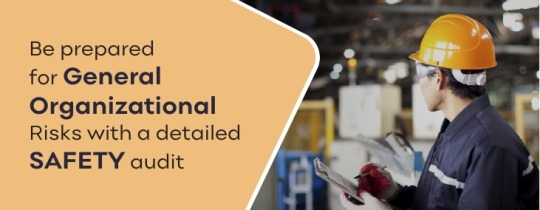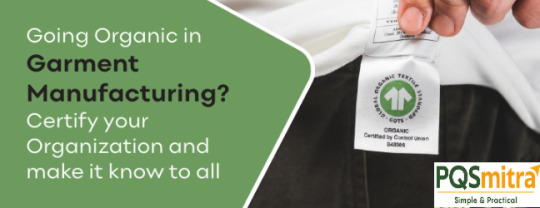Text
PQSmitra is a leading greenhouse gas consultant in Mumbai, India. We provide expert greenhouse gas emissions reporting and consulting services in Mumbai, India. Trust us for accurate reporting and effective strategies to reduce greenhouse gas emissions.
0 notes
Text
Understanding the Significance of FSC Certification in Sustainable Practices
Understanding the Significance of FSC Certification in Sustainable Practices
In the global pursuit of sustainable and responsible business practices, certifications play a crucial role in ensuring that products come from environmentally and socially responsible sources. One such certification that stands out in the realm of forestry and wood products is the Forest Stewardship Council (FSC) certification. Let's delve into the significance of FSC certification and its impact on promoting sustainability.
**1. Preserving Forest Ecosystems: FSC certification is a testament to a commitment to responsible forestry. Certified forests adhere to stringent environmental standards, ensuring that logging practices prioritize the preservation of biodiversity, protect endangered species, and maintain the overall health of forest ecosystems.
**2. Social Responsibility: Beyond environmental considerations, FSC certification places a strong emphasis on social responsibility. Certified forestry operations must adhere to principles that safeguard the rights of indigenous communities, local workers, and forest-dependent people. This ensures that forestry practices contribute positively to the well-being of communities.
**3. Promoting Responsible Logging: FSC certification sets guidelines for sustainable logging practices. Certified operations follow best practices to minimize the impact of logging activities, such as selective cutting, reforestation efforts, and the prevention of illegal logging. This helps in maintaining the long-term viability of forests.
**4. Traceability and Transparency: One of the key strengths of FSC certification is its emphasis on traceability. From forest to end product, the entire supply chain is scrutinized to ensure that certified products can be traced back to responsibly managed forests. This transparency builds consumer trust and confidence in the origin of wood and paper products.
**5. Market Access and Preference: As sustainability becomes a focal point for consumers, businesses, and regulatory bodies, having FSC certification provides market access and preference. Many environmentally conscious consumers actively seek products with the FSC label, creating a competitive advantage for businesses committed to sustainability.
**6. Certification for Various Products: While FSC certification is often associated with wood and paper products, it extends beyond forestry. The certification can apply to a wide range of products, including non-timber forest products, ensuring that diverse ecosystems and resources are responsibly managed.
**7. Global Recognition: FSC is a globally recognized certification standard, offering a standardized approach to sustainable forestry practices. This international recognition facilitates trade and cooperation among countries and regions, fostering a shared commitment to environmental and social responsibility.
**8. Contribution to Climate Change Mitigation: Sustainable forestry, as promoted by FSC certification, contributes to climate change mitigation. Forests act as carbon sinks, and responsible forestry practices help maintain and enhance the carbon sequestration capacity of forests, playing a role in addressing climate-related challenges.
**9. Continuous Improvement and Innovation: FSC certification is not a one-time achievement; it requires ongoing commitment and adherence to evolving standards. This encourages certified entities to engage in continuous improvement and innovation, staying abreast of the latest developments in sustainable forestry practices.
**10. Educating and Empowering Consumers: FSC certification goes beyond labeling products; it serves as an educational tool for consumers. The FSC label empowers consumers to make informed choices, encouraging a shift towards sustainable and ethical consumption patterns.
In conclusion, FSC certification plays a pivotal role in promoting sustainable and responsible practices in forestry and related industries. Businesses and consumers alike can contribute to the conservation of forests and the well-being of communities by supporting FSC-certified products. As the demand for sustainable options continues to grow, FSC certification stands as a beacon for those committed to balancing environmental conservation with economic activities.
0 notes
Text
Navigating the World of ISO 27001 Certification Consultants: A Comprehensive Guide
In the rapidly evolving landscape of information security, businesses are increasingly turning to ISO 27001 certification to fortify their data protection measures. Achieving ISO 27001 certification requires a strategic and well-implemented Information Security Management System (ISMS), and many organizations seek the expertise of ISO 27001 certification consultants to guide them through this process. This blog explores the role of ISO 27001 certification consultants, their significance, and how they contribute to the successful implementation of ISMS.
Understanding ISO 27001 Certification: ISO 27001 is an internationally recognized standard for information security management. It provides a systematic approach to managing sensitive company information, ensuring its confidentiality, integrity, and availability. Achieving ISO 27001 certification involves the development and implementation of an effective ISMS, tailored to the organization's unique needs.
The Role of ISO 27001 Certification Consultants:
Expert Guidance: ISO 27001 certification consultants bring a wealth of expertise to the table. They are well-versed in the intricacies of the ISO 27001 standard, keeping abreast of updates and industry best practices. Their knowledge helps organizations interpret and apply the standard effectively.
Customized Implementation: Every organization is unique, and ISO 27001 certification consultants understand this. They work closely with businesses to tailor ISMS implementation to specific organizational goals, risk tolerance, and industry requirements.
Risk Assessment and Management: A crucial aspect of ISO 27001 is identifying and managing information security risks. Certification consultants assist in conducting thorough risk assessments, ensuring that all potential vulnerabilities are addressed, and risk treatment plans are in place.
Documentation Support: ISO 27001 requires extensive documentation of policies, procedures, and controls. Certification consultants assist organizations in developing clear and comprehensive documentation that aligns with ISO 27001 requirements.
Preparation for Certification Audits: ISO 27001 certification involves a rigorous audit process. Consultants prepare organizations for certification audits, guiding them through mock audits and ensuring that all necessary documentation and processes are in order.
Benefits of Hiring ISO 27001 Certification Consultants:
Efficiency: Consultants streamline the certification process, saving time and resources. Their experience allows for efficient implementation without unnecessary delays.
Cost-Effective Solutions: While there is a cost associated with hiring consultants, the expertise they bring can result in cost-effective solutions. Consultants help organizations avoid common pitfalls and fines associated with non-compliance.
Continuous Improvement: ISO 27001 certification is not a one-time achievement; it requires ongoing commitment to continuous improvement. Certification consultants instill a culture of continual improvement, ensuring that the ISMS evolves to address emerging threats and challenges.
0 notes
Text
IATF 16949 vs. ISO 9001: Understanding the Key Differences
IATF 16949 vs. ISO 9001: Understanding the Key Differences
Both IATF 16949 and ISO 9001 are internationally recognized quality management standards, but they cater to different industries and have unique requirements. Here's a breakdown of the key differences between IATF 16949 and ISO 9001:
1. Industry Focus:
ISO 9001: It is a generic quality management standard applicable to various industries and organizations of any size.
IATF 16949: Specifically designed for the automotive industry, addressing the unique challenges and requirements of automotive manufacturers and suppliers.
2. Applicability:
ISO 9001: Suitable for all types of organizations, regardless of their involvement in the automotive sector.
IATF 16949: Primarily intended for organizations in the automotive supply chain, including manufacturers, suppliers, and service providers.
3. Customer-Specific Requirements:
ISO 9001: Focuses on meeting customer requirements but doesn't specify industry-specific customer requirements.
IATF 16949: Includes additional requirements that are specific to the automotive industry, reflecting the expectations of automotive OEMs (Original Equipment Manufacturers).
4. Product Safety:
ISO 9001: While it emphasizes the need to meet customer requirements, it doesn't explicitly address product safety.
IATF 16949: Places specific emphasis on product safety, reflecting the critical nature of safety considerations in the automotive industry.
5. Risk-Based Thinking:
ISO 9001: Encourages a general approach to risk-based thinking.
IATF 16949: Requires a more detailed and specific focus on risk management, including the identification and mitigation of risks related to the automotive supply chain.
6. Process Approach:
ISO 9001: Emphasizes a process approach to quality management.
IATF 16949: Extends the process approach to include a more detailed focus on specific automotive processes and requirements.
7. Product Development:
ISO 9001: Addresses product realization processes in a general sense.
IATF 16949: Includes more detailed requirements for product development and validation processes, reflecting the complexity of the automotive product development lifecycle.
8. External Certification Bodies:
ISO 9001: Can be certified by various accredited certification bodies.
IATF 16949: Requires certification through specifically accredited bodies recognized by the International Automotive Task Force (IATF).
9. Change Management:
ISO 9001: Requires organizations to manage changes to the quality management system.
IATF 16949: Places a stronger emphasis on change management, especially in the context of automotive processes and products.
Understanding these key differences is crucial for organizations in the automotive industry as they navigate the complexities of quality management. While both standards share common elements, the industry-specific focus of IATF 16949 sets it apart and addresses the distinct challenges faced by automotive manufacturers and suppliers.
0 notes
Text
Carbon Disclosure Project Reporting and Training | PQSmitra
Enhance Corporate Environmental Performance with CDP Report Consultation, Documentation, and Training Services from PQSmitra. Our tailored solutions will help your organization excel in reporting, strengthening your sustainability initiatives and competitive edge.
0 notes
Text
Elevate the standards of your organization's quality management system with IRIS certification, offered by PQSmitra. Our team of experienced consultants is dedicated to providing comprehensive support throughout the certification process. We understand the importance of meeting IRIS standards to enhance the quality, reliability, and efficiency of your products and services. By choosing PQSmitra as your partner in this journey, you can ensure that your quality management system is not just compliant but optimized for excellence, ultimately driving greater customer satisfaction and business success.
0 notes
Text
Experience a higher level of automotive excellence with IATF 16949 Certification, a globally recognized standard for quality management in the automotive industry. At PQSmitra, we are your trusted ISO 16949 Certification Consultant located in the vibrant city of Mumbai, India.
IATF 16949 Certification is designed to enhance the quality, efficiency, and overall performance of automotive supply chains. It ensures that your organization complies with rigorous standards, resulting in improved product quality, reduced defects, and increased customer satisfaction.
Our dedicated team of experts at PQSmitra possesses in-depth knowledge and extensive experience in guiding businesses through the certification process. We work closely with automotive manufacturers, suppliers, and service providers to help them meet the stringent requirements of IATF 16949.
By choosing PQSmitra as your certification partner, you can expect:
Expert Guidance: Our consultants provide valuable insights and guidance to align your processes with IATF 16949 standards, ensuring a smooth certification journey.
Efficient Process: We streamline the certification process, helping you save time and resources while achieving compliance with industry standards.
Enhanced Quality: IATF 16949 certification leads to improved quality control, reducing defects, and ultimately, boosting your reputation in the automotive sector.
Global Recognition: Certification opens doors to new markets and business opportunities, as IATF 16949 is recognized worldwide.
Customer Trust: Meeting these high standards instills confidence in your customers, demonstrating your commitment to delivering quality automotive products and services.
Competitive Advantage: Stand out in a competitive market by showcasing your dedication to excellence through IATF 16949 certification.
Elevate your automotive quality standards today with PQSmitra as your partner. Our mission is to empower your organization to thrive in the demanding automotive industry by achieving and maintaining IATF 16949 Certification. Contact us to embark on your journey towards automotive excellence.
0 notes
Text
Navigating the Path of Ethical Trading: Tesco's Commitment to ETI Base Code
In an increasingly interconnected world, ethical trading practices have emerged as a cornerstone of responsible business conduct. Among the pioneers leading the charge is Tesco, a retail giant that has embedded ethical considerations at the heart of its operations. Central to their endeavor is the rigorous adherence to the Ethical Trading Initiative (ETI) Base Code—a set of principles that define the standards for fair and ethical treatment across supply chains.
Tesco's Ethical Trading Journey: Tesco's dedication to ethical trading is more than a policy; it's a reflection of their commitment to sustainable business practices. As a responsible corporate citizen, Tesco recognizes that the impact of its actions reverberates through a complex network of suppliers, workers, and communities.
The Significance of the ETI Base Code: At the core of Tesco's ethical trading strategy lies the ETI Base Code. This comprehensive set of principles encompasses essential areas such as labor rights, health and safety, and environmental responsibility. By aligning with these standards, Tesco ensures that every link in their supply chain adheres to the same values of fairness, transparency, and integrity.
Empowering Workers: Tesco's dedication to ethical trading translates into tangible benefits for workers across the globe. The ETI Base Code ensures that employees are treated with respect, provided safe working conditions, and given the opportunity to voice their concerns. Through partnerships with suppliers, Tesco works to create an environment where workers can thrive and contribute to the success of the business.
Transparency and Collaboration: Ethical trading isn't a solitary endeavor. Tesco recognizes that real progress is achieved through collaboration. By working closely with suppliers and stakeholders, Tesco fosters transparency and accountability throughout the supply chain. This collaborative approach enables all parties to actively engage in ethical practices, creating a sustainable ecosystem of trust.
Driving Industry Change: Tesco's commitment to ETI Base Code compliance isn't just about their own operations—it's about raising the bar for the entire industry. By setting an example, Tesco demonstrates that ethical trading is not only possible but also beneficial for both businesses and society as a whole. Through their actions, they inspire others to embrace responsible practices and contribute to positive change.
PQSmitra: Championing Ethical Excellence: As a testament to their dedication, Tesco has partnered with PQSmitra to ensure the verification and validation of their adherence to the ETI Base Code. PQSmitra's expertise in ethical standards and verification processes aligns seamlessly with Tesco's commitment to maintaining the highest levels of ethical trading practices.
Joining the Journey: Tesco's journey toward ethical trading, anchored in ETI Base Code compliance, is an inspiring example of how businesses can be a force for good. By integrating ethical considerations into their operations, Tesco paves the way for a brighter, fairer, and more sustainable future for all stakeholders involved.
In conclusion, Tesco's commitment to ethical trading verification and compliance with the ETI Base Code stands as a beacon of responsible business conduct. Through this unwavering dedication, Tesco is not only enhancing its own operations but also reshaping the landscape of ethical trading, inspiring others to follow suit and create a more just and equitable global marketplace.
0 notes
Link
ISO 21001 is a management system standard designed specifically for educational organizations. It provides a framework to help educational institutions effectively plan, manage and deliver educational services.
ISO 21001 certification is the key to providing quality education services. At PQSmitra, our ISO 21001 certification consultants in India can help you implement an effective education management system that meets international standards. Contact us to get started.
0 notes
Text
BRCGS Global Standard for Packaging and Packaging Materials - PQSmitra
The Brand Reputation Compliance Global Standards(BRCGS) for packaging is the standard developed by the BRCGS for the organizations that are suppliers of packaging products to the Food Producers & Manufacturers. The standard ensures safe production processes for packaging materials & management of product quality to meet customer requirements while being compliant to legal requirements
PQSmitra offers BRC packaging certification in Mumbai, India. We help you to demonstrate compliance in hazard and risk management, hygiene, product safety and quality systems.

0 notes
Text
Safety Audit Consultants India - PQSmitra
The Safety Audit helps an organization to understand the gaps in the health & safety management system, provides guidance for continual improvement and is the most comprehensive way to evaluate the effectiveness & efficiency of the Health & Safety management system implemented at an organization.
PQSmitra is one of the leading safety audit consultants in Mumbai, India. Our safety audit consultants have extensive experience and technical expertise that is highly valued in the industry.

0 notes
Text
Electrical Safety Audit Services - PQSmitra
The electrical safety audit assesses the safety & security of the electrical insulations installed in any industry or organization. The electrical safety audit is performed by experienced professionals which provide the required assistance to the organizations in reducing the risk related to electricity & compliance to the safety standards.
PQSmitra is one of the best electrical safety auditors in Mumbai, India. Electrical Safety Audits are conducted by our experienced team, who assist clients in reducing risk and help to ensure compliance with applicable standards and Regulations.

0 notes
Text
Machine Safety Audit Services - PQSmitra
The electrical safety audit is concerned with the safety and security of electrical insulators installed in any industry or organization.
PQSmitra is one of the best electrical safety auditor in Mumbai, India. Electrical Safety Audits are conducted by our experienced team, who assist clients in reducing risk and helps to ensure compliance with applicable standards and regulations.

0 notes
Text
PSCI Audit Services - PQSmitra
PQSmitra offers PSCI pharmaceutical supply chain initiative audit services in Mumbai, India. Our PSCI audit services verify all businesses within the pharmaceutical and healthcare supply chain to.continuously enhance ethics, labour, health, safety, and environmental sustainability.
PQSmitra Team helps organizations to implement the requirements of Pharmaceutical Supply Chain Initiative (PSCI) in the simplest and systematic manner.

0 notes
Text
BRC Storage and Distribution Certification - PQSmitra
The BRCGS global standard for Storage & distribution places emphasis on the quality & safety requirements for the storage and distribution of both food and Non-food products.
Implement a robust and safe practice for Food Manufacturing Storage with BRC Storage and Distribution Certification.

0 notes
Text
Global Organic Textile Standard Certification - PQS mitra
GOTS Certification aims at defining a Universal Standard for Organic Fabrics which overviews everything from harvesting raw materials to its labeling, in order to provide assurance to its consumer by GOTS certified organic cotton.
PQSmitra is one of the leading GOTS Certification Consultants in Mumbai, India. We provide Global Organic Textile Standard Certification for textile industries, garment & home - textile export house, etc.
PQSmitra is a leading Management Consultant with over 2500 satisfied clients, delivering high-quality Management Consultancy Services to organizations from all sectors in India and Overseas

0 notes